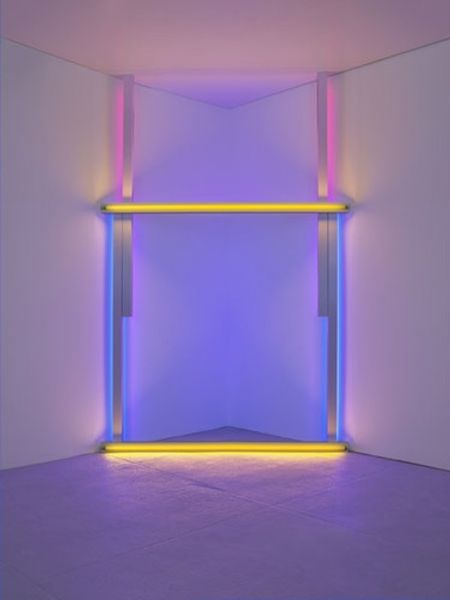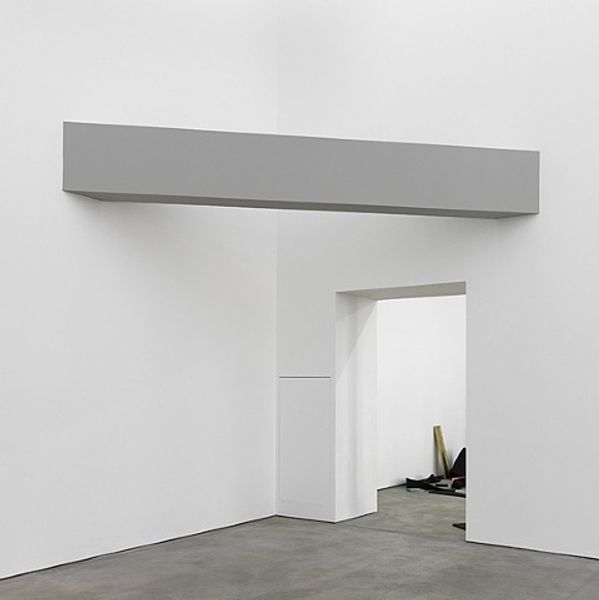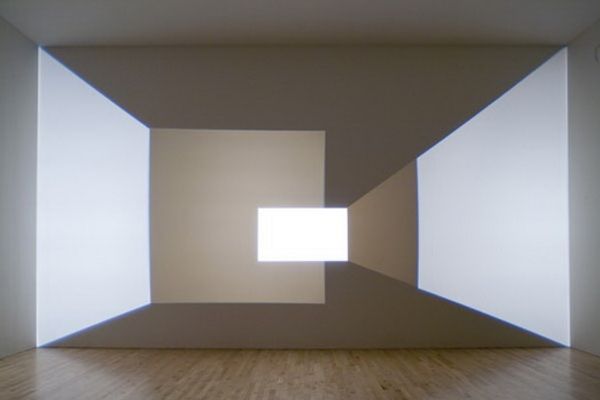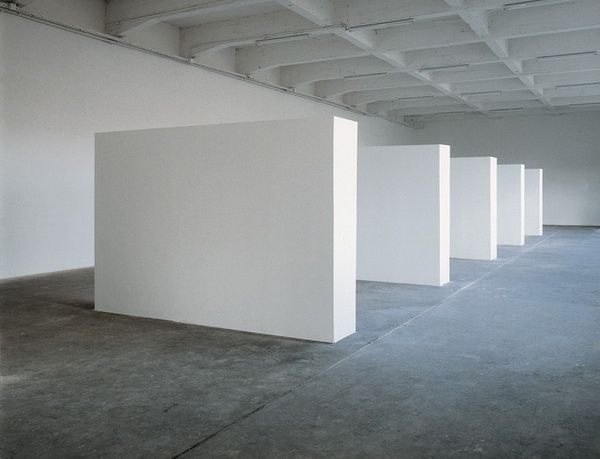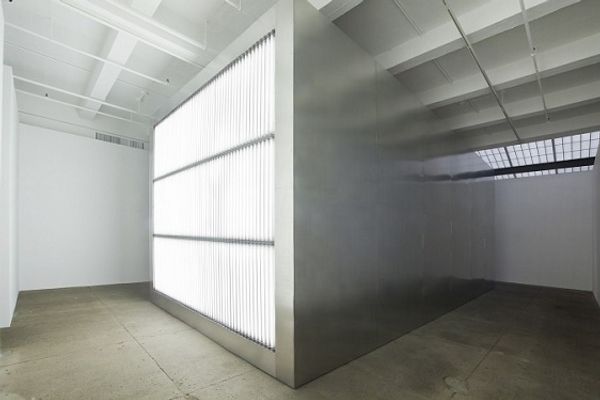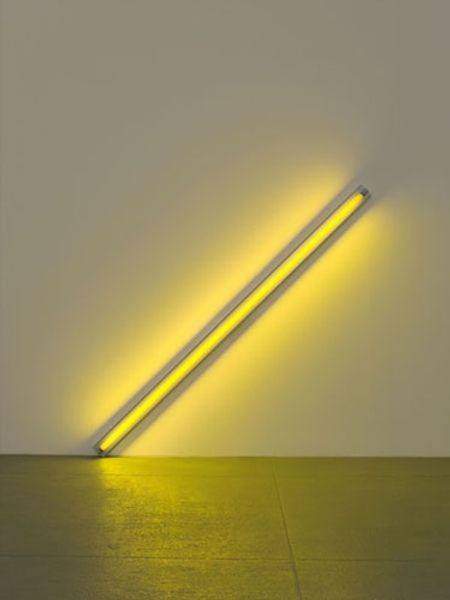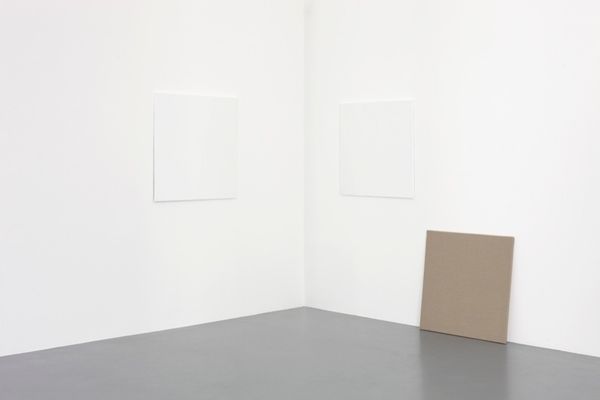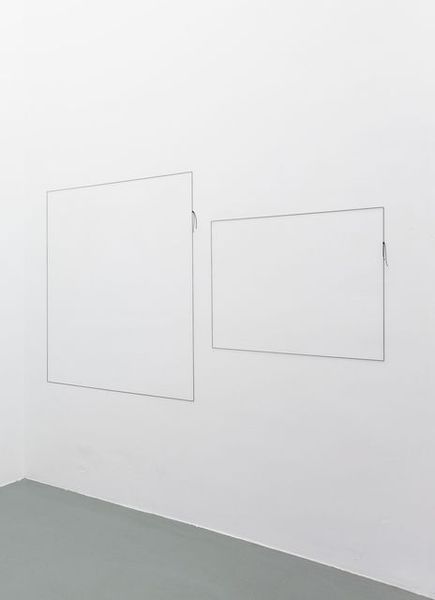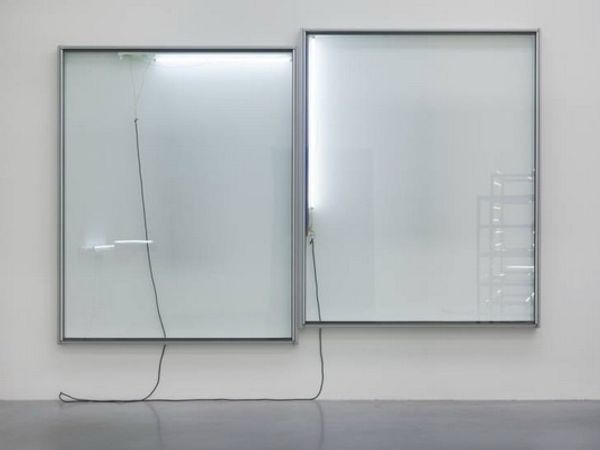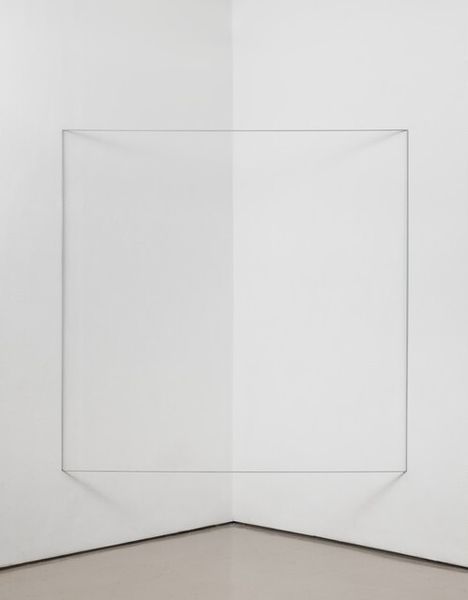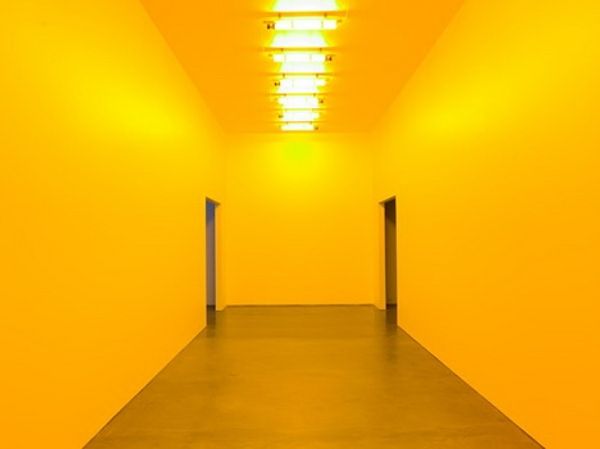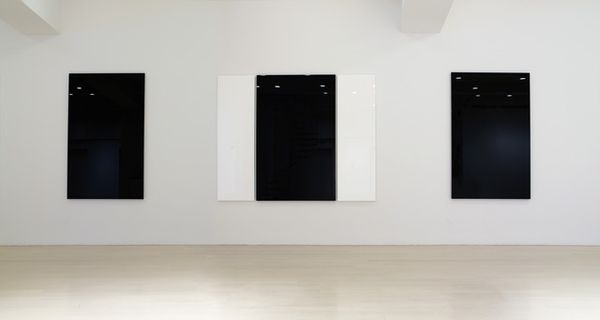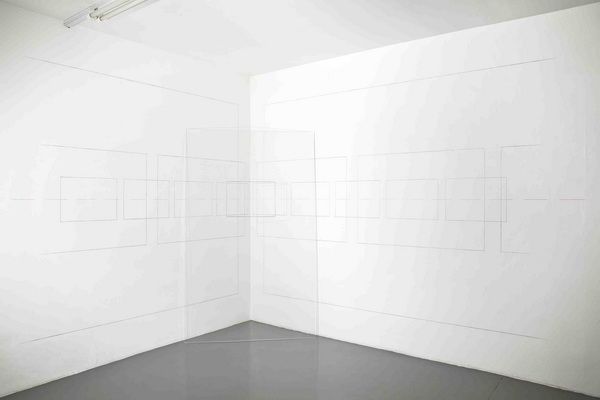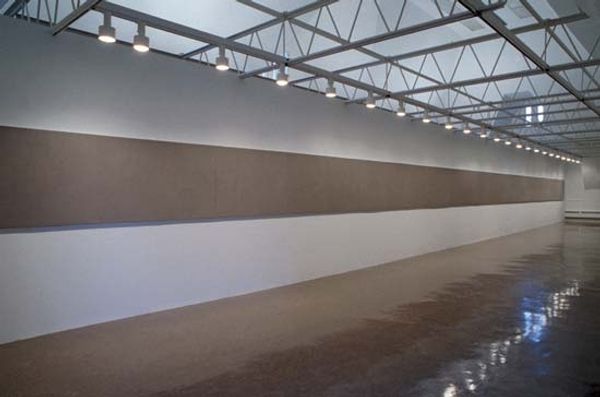
sculpture, installation-art
#
conceptual-art
#
minimalism
#
geometric
#
sculpture
#
installation-art
#
line
Copyright: Dan Flavin,Fair Use
Curator: Well, this certainly brightens up the room! This installation is "The nominal three (to William of Ockham)" by Dan Flavin, created in 1963. It's currently part of the Guggenheim's collection here in New York. Editor: My first impression? Clinical. And yet, there’s a stark beauty. These fluorescent tubes, starkly placed, slice through the space. It's unsettling but clean. Curator: The clinical aspect is interesting because Flavin dedicated this piece to William of Ockham, a 14th-century philosopher known for Occam's Razor – the principle of simplicity. Do you think it captures that philosophical rigor? Editor: Absolutely, it reduces sculpture to its most basic elements: light, form, and industrial materials. There’s no carving, no casting, just the manipulation of readymade fluorescent tubes. It confronts the whole art market logic, no? It’s about democratizing access, where light itself is the medium available for anyone to utilize. Curator: Yes! The readily available aspect of the material is key, aligning it with Minimalist principles, right? Editor: Indeed, rejecting art's preciousness through its commitment to unadorned materials like, here, off-the-shelf light fixtures. By choosing these materials, Flavin subverts the preciousness usually associated with sculpture. This pushes viewers to confront the underlying structures shaping art, inviting examination of production and commodification in ways traditionally sidelined by art history’s obsession with originality. Curator: But don't you find it fascinating how these humble materials create such an ethereal effect? The glow transforms the surrounding architecture. The shadows dancing against the wall, a silent ballet. Editor: Sure, but the “ethereal” vibe relies on industrial capitalism, its infrastructures and waste disposals and extraction methods! But if the effect wasn’t “ethereal” then, probably, this wouldn’t be in the Guggenheim today. Curator: It’s a testament to art's transformative power – its ability to challenge our perceptions and highlight social considerations within familiar spaces. The stark simplicity invites reflection and makes me feel contemplative every time. Editor: Right! Flavin's work underscores how the everyday, even the commercially produced, when examined through a critical lens, becomes an occasion to reassess and maybe dismantle conventions.
Comments
No comments
Be the first to comment and join the conversation on the ultimate creative platform.
